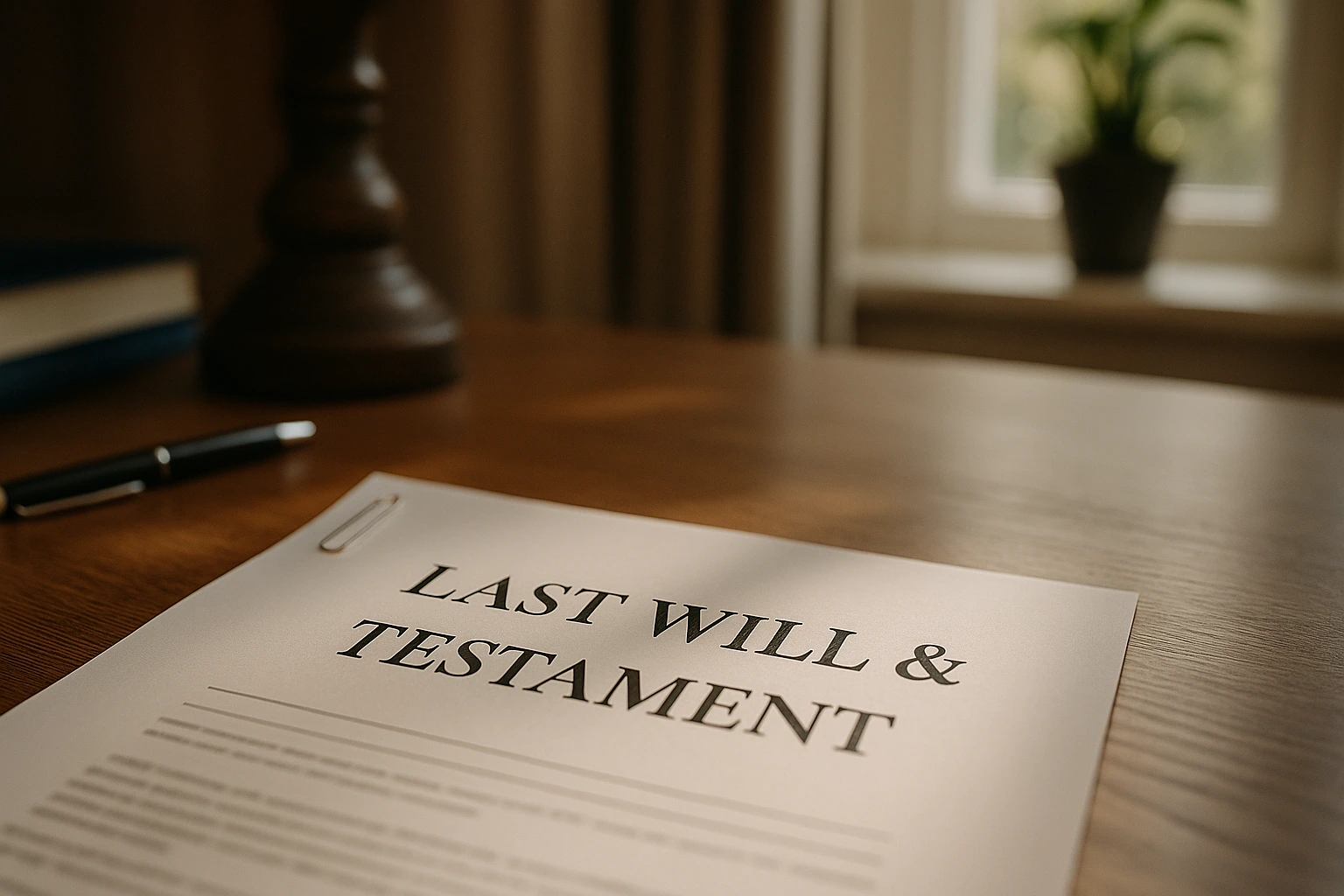Estate Planning in Central Florida: What Families Should Know

🧭 TL;DR
Estate planning isn’t just for the wealthy—it’s essential for anyone with property, especially homeowners in Orlando and Central Florida. This guide walks you through wills, trusts, powers of attorney, and Florida’s probate process so your family avoids unnecessary court delays, costs, and stress. Whether you live in Winter Park, Lake Nona, or Windermere, taking the time to plan ahead could save your loved ones months—or even years—of confusion and expense.
Estate Planning and Probate in Central Florida: A Guide for Families
Estate planning may sound like something for “later,” but waiting too long can create major problems—especially in Florida, where probate rules are strict and delays can be costly. If you own real estate in Orlando or the surrounding area, understanding the basics now can save your family time, money, and stress later.
What Is Estate Planning?
At its core, estate planning is the process of deciding what happens to your property and personal assets when you pass away or become incapacitated. A complete estate plan covers:
-
Your home and other real estate
-
Bank and retirement accounts
-
Vehicles and valuables
-
Guardianship of children (if applicable)
-
Medical decisions if you're unable to make them
-
Legal authority to manage your affairs
Why Florida Homeowners Must Pay Attention
In Florida, if you die without a valid will or trust, your assets don’t automatically go to your closest family members. Instead, they go through probate, a court process that can tie up your estate for months (or longer). Real estate especially—like your home in Celebration or a vacation rental in Clermont—can get stuck in limbo, preventing family from selling, refinancing, or even accessing it.
Key Components of an Estate Plan
1. Will (Last Will and Testament)
This names your beneficiaries and designates how you want your assets distributed. In Florida, wills must follow strict rules—such as being signed in the presence of two witnesses—to be valid.
Why it's important:
Without a will, the court uses Florida's intestate succession laws to decide who inherits—which may not align with your wishes.
2. Trusts
There are two main types:
-
Revocable Living Trusts: Allow your assets to pass to heirs without going through probate. You stay in control during your lifetime and name a successor trustee for after.
-
Irrevocable Trusts: Can offer tax advantages and protect assets from creditors, but you give up some control.
Why it matters in Central Florida:
If you own multiple properties or plan to leave real estate to children or heirs, placing those assets in a trust can make things smoother and faster.
3. Powers of Attorney
-
Financial Power of Attorney: Allows someone to manage your accounts, pay bills, or handle property transactions if you're incapacitated.
-
Healthcare Power of Attorney: Appoints someone to make medical decisions on your behalf.
-
Living Will: Outlines your medical preferences in critical or end-of-life situations.
Understanding the Florida Probate Process
If no trust is in place, and the property isn't jointly owned or doesn't have a transfer-on-death deed, it will likely go through probate. Here’s what that typically looks like:
-
Petition Filed: A family member or representative files paperwork with the court.
-
Executor/Personal Representative Appointed: The court designates someone to handle the estate.
-
Assets Identified & Valued: Including any real estate, bank accounts, and valuables.
-
Creditors Notified: The estate must settle any outstanding debts.
-
Distribution to Heirs: Once debts are paid, the remaining assets are distributed according to the will—or state law if no will exists.
-
Court Closes the Estate: The probate process ends.
This process can take anywhere from 3 months to over a year, depending on complexity. Properties in probate can’t usually be sold or transferred until the court approves.
Benefits of Proper Planning
For homeowners in Central Florida, the benefits of creating a solid estate plan include:
✅ Avoiding Probate Delays
✅ Keeping Your Family Out of Court
✅ Minimizing Taxes and Legal Costs
✅ Ensuring Real Estate Transfers Smoothly
✅ Protecting Minor Children or Loved Ones With Special Needs
When to Start (Hint: Sooner Is Better)
It’s never too early to plan. Major life changes—like buying a home in Lake Nona, having children, or remarrying—are ideal times to revisit or establish an estate plan.
And don’t worry: you don’t need to do it all alone. A good estate attorney will walk you through the process, and as a real estate professional with deep ties in Central Florida, I’m happy to connect you with trusted local resources.
Final Thoughts
Estate planning doesn’t have to be overwhelming. It’s one of the most powerful things you can do to protect your legacy and your loved ones. Whether you already own a home in Central Florida or you’re planning to buy one, having a thoughtful plan in place ensures everything you’ve worked for ends up where it belongs.
If you’re unsure where to start, reach out. Let’s talk through how your home fits into your long-term goals—and make sure your plan reflects the life you’re building.
Categories
Recent Posts










GET MORE INFORMATION


